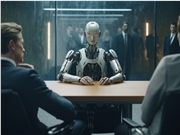Under the rapid advancement of artificial intelligence technology, the dubbing industry in Australia is facing unprecedented challenges. Recently, the Australian Voice Actors Association (AAVA) submitted a report to the parliamentary committee, indicating that the jobs of approximately 5000 local voice actors are at serious risk. They fear that with the emergence of cheap generative AI cloned voices, their work could be completely replaced.
The "Canary" in the Dubbing Industry
Simon Kennedy, the president of AAVA, told The Guardian Australia that the impact of AI on the dubbing industry is part of the reason they formed the association. However, he emphasized that they are not against technology or AI; they merely hope to establish fair rules to ensure that the use of technology does not abuse people's voices.
Kennedy pointed out that audiobooks are a frontier issue for voice actors. Due to the large volume of audiobook production, companies believe that using AI can save costs. However, he warned that if the voices in audiobooks are AI-generated, people might lose interest in them. "When it's an AI voice, I think people won't pay attention to their audiobooks anymore. They might feel, 'I have no connection.'"

Image source: Picture generated by AI, authorized by Midjourney
Kennedy also mentioned that corporate work and educational materials are areas where AI dubbing technology is easily replaceable, but the advertising industry might take longer. He explained, "Large advertisers need quality, and AI cannot meet their demands for a considerable period."
Additionally, voice actors are concerned that their voices, once cloned, could exist in the market as digital clones, taking away their rightful jobs. Last year, The Guardian Australia reported that Australian software development company Replica Studios had licensed 120 actors' voices for video game development and paid them for cloning their voices. In January this year, the company reached an agreement with the American Actors' Union, stating that this is a moral way to use AI voices—all content is authorized.
Actors' Diverse Reactions
Actors' reactions to AI dubbing technology vary. Australian actor Cooper Mortlock said this would reduce job opportunities for emerging voice actors trying to establish themselves in the industry, especially if they use AI-generated temporary voices as substitutes for final voices. He said, "This not only limits the opportunities for artists themselves but also the creative scope of projects. There's no chance for 'happy accidents' or surprises—because AI just reuses what already exists."
Mortlock also mentioned an animated project he participated in where his voice was cloned and used without his consent after he stopped working. He believes that AI-generated dialogue will lack the creativity of human voice actors in script dialogue. He described this technology as "vast like the ocean but shallow like a puddle."
Australia's Challenge
So far, AI voice cloning has often struggled with non-American accents. For example, Australian voices often carry an American accent. However, new services now offer voices of Australians of different ages and accents. Kennedy hopes this delay is a sign that Australians are refusing to surrender their voices.
Mortlock believes this lag is due to the smaller Australian market and the lack of sufficient datasets for AI to learn the nuances of Australian accents. "Now there's more data available. I think this is mainly a US-centric issue... it's just expanding—I don't necessarily think it's related to the accent itself."
Call for Legislation
AAVA calls for laws to regulate the use of AI voices, ensuring artists receive fair compensation and complete control over how their voices are used (if authorized). Mortlock said he hopes to ban AI from creative industries to ensure workers can continue to be employed, but he believes taxing the use of technology to compensate workers and greater transparency would be appropriate.
"Actors should be compensated, and I think there needs to be disclosure about who each voice they hire is. Otherwise, they might replace an actor from the internet... it's become the 'Wild West.'"










